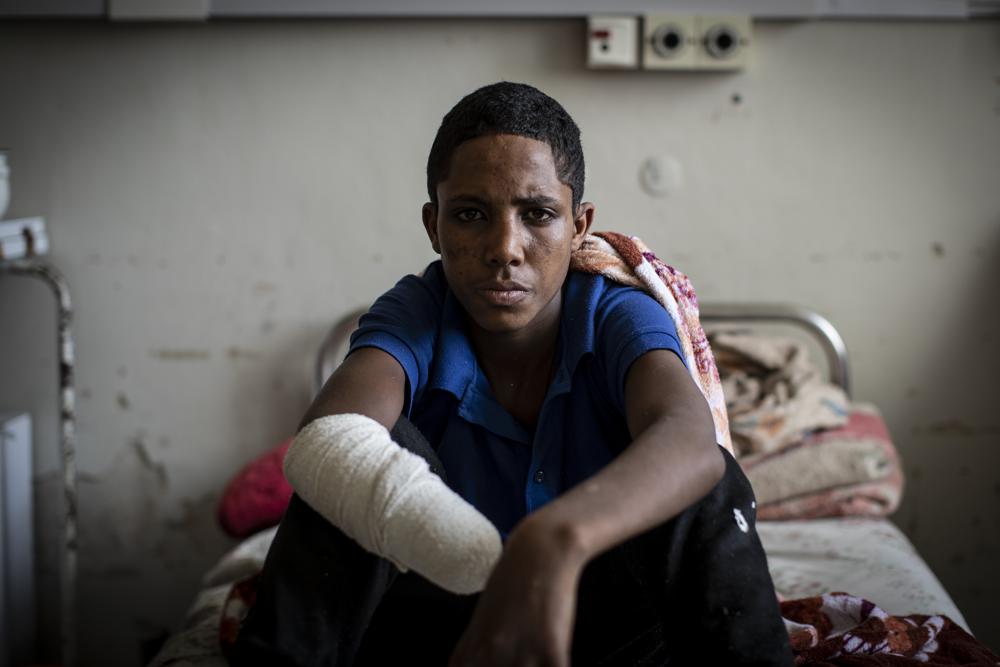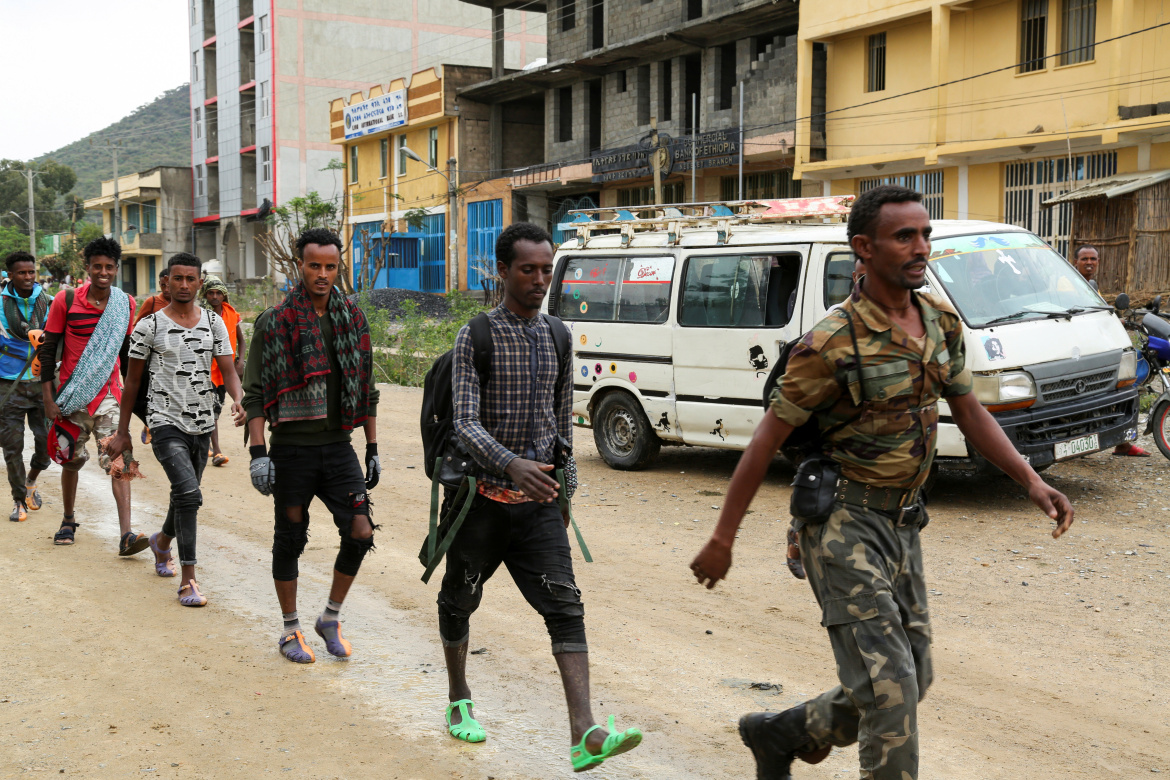All
sides fighting in the war in Ethiopia's northern region of Tigray committed
violations that may amount to war crimes, according to a long-awaited joint
investigation by the United Nations and Ethiopia and published on Wednesday.
The
report by the U.N.'s Office of the High Commissioner for Human Rights and the
state-appointed Ethiopian Human Rights Commission was released the day after
Ethiopia declared a state of emergency. Tigrayan forces said on Monday they
might march on the capital to topple the government of Africa's second most
populous nation.
The
report covers most of the year-long conflict, fought by Tigrayan forces against
the Ethiopian military and its key allies: forces from Ethiopia's Amhara region
and soldiers from the neighbouring nation of Eritrea.
All
sides are accused of torturing and killing civilians, carrying out gang-rapes
and making arrests on the basis of ethnicity.
It
was not immediately clear whether findings from the report could form the basis
for legal action. Ethiopia and Eritrea are not members of the International
Criminal Court, so the court has no jurisdiction.
The
report recommended a possible international justice mechanism, saying Ethiopian
investigations were insufficiently broad, did not always comply with
international standards, and were not always transparent.
The
report draws on 269 interviews. Many accounts contain graphic details of rapes
and mutilations by Eritrean soldiers on military bases.
Legesse
Tulu, Ethiopia’s government spokesperson, did not immediately respond to
requests for comment on the contents of the report. Eritrea’s Minister of Foreign
Affairs Osman Saleh declined to comment. The Tigray People's Liberation Front
(TPLF) spokesperson Getachew Reda and Amhara regional spokesperson Gizachew
Muluneh were not reachable for comment.
Eritrea
refused to engage with investigators, the report said, but has denied in the
past that its forces carried out rapes, despite extensive documentation,
including by Reuters. Ethiopia has said some individual soldiers are on trial
for rape and killing. Amhara has denied abuses.
TPLF
spokesperson Getachew has previously denied that Tigrayan forces committed
abuses but said some "vigilante" Tigrayan groups may have committed
violations.
The
100-page report said that Eritrean soldiers had killed around 100 civilians in
the city of Axum; that Ethiopian soldiers had dragged about 70 men from their
homes and killed them in three villages in southern Tigray; and that Tigrayan
forces had killed around 200 Amhara civilians in the town of Mai Kadra, a crime
then followed by revenge killings of Tigrayans by Amhara.
The
report said it was not an exhaustive list of incidents. Reuters and other news
organisations, rights groups, and civil society groups have documented many
more killings of civilians that were not mentioned.
The
report also accused Eritrean soldiers of forcing Eritrean refugees living in
Tigray to return, in violation of international law.
The
report accused all sides of blocking aid at different times and said it could
not verify whether starvation was used as a weapon of war, as had been
previously alleged by the United Nations aid chief. The U.N. has said the
government operated a "de facto blockade" of food aid, a charge the
government denied.
The
report mentioned investigators were often hindered in their work, particularly
areas controlled by Amhara forces, or unable to visit certain areas due to
insecurity. It did not mention that Ethiopia deported a U.N.
investigatorworking on the report in September.
The
TPLF, which controls most of Tigray, has said the report was incomplete because
investigators did not visit many areas and did not involve the Tigrayan
leadership.
"They
have kept us in the dark," Getachew said on Tuesday ahead of the full
report's publication.
The
report said the Tigrayan leadership was reluctant to engage because of the
presence of investigators from the state-appointed Ethiopian Human Rights
Commission.
Among
other violations, the report documented allegations that Tigrayan forces had
fired on civilians sheltering in a church in the town of Adi Hageray on Nov. 3.
The
war began a year ago after regional forces and Tigrayan soldiers in the
national army seized control of military bases across Tigray. They said the
central government was about to move against Tigray after the region held its
own elections despite a government directive delaying them.
According
to UN, the conflict has plunged around 400,000 people in Tigray into famine,
killed thousands of civilians and forced more than 2.5 million people in
northern Ethiopia to flee their homes.
U.N.
human rights chief Michelle Bachelet agreed in March to an Ethiopian request
for a joint investigation, saying then it was possible war crimes had been
committed in Tigray.
By Reuters












0 Comments